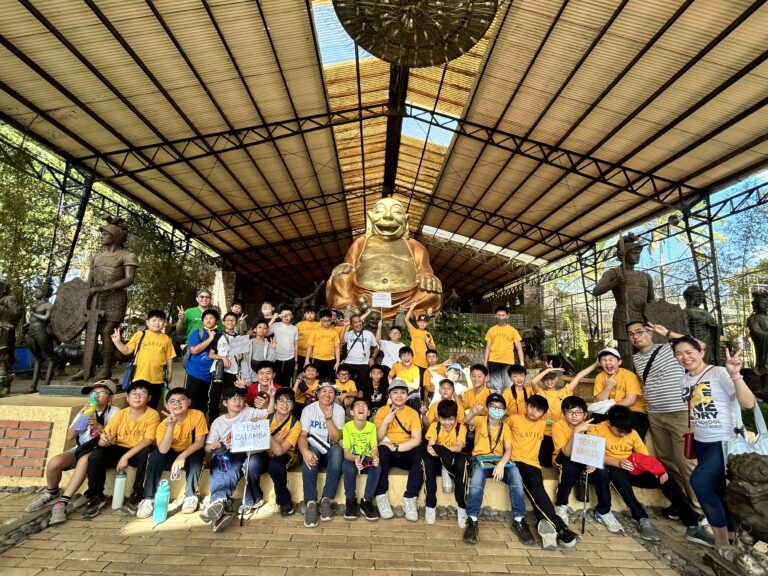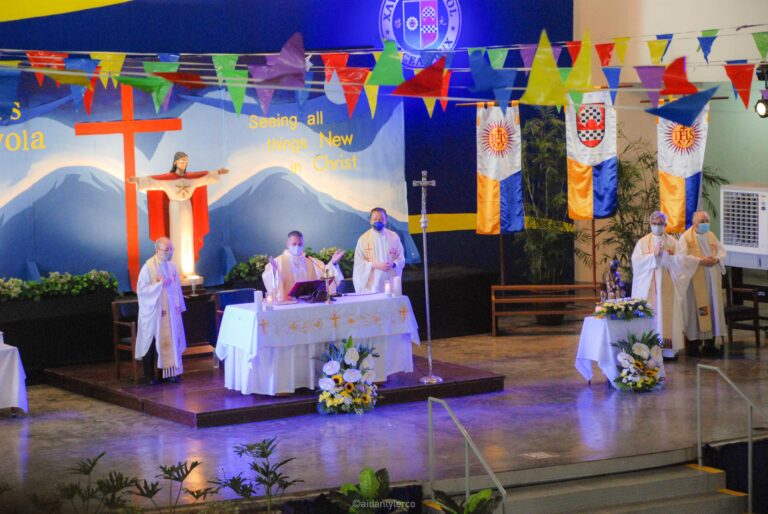During the super-typhoon Carina, we saw many heartwarming acts of generosity that restored our faith in humanity. Some Xavier School Alumni and parents selflessly provided financial aid and essential supplies to support ongoing relief efforts. Some Xavier School students, teachers, and staff volunteered their time to pack relief goods for the affected communities. A touching story involved a cancer survivor who organized a feeding program for her impoverished neighbors affected by the flood. A heroic man rescued a dog trapped near the roof of a submerged hut. Several establishments, including malls, schools, and churches, opened their doors to provide shelter for those in need. Many restaurants initiated relief operations in response to the calamity. These remarkable acts of kindness and compassion serve as poignant reminders of the essence of St. Ignatius’ prayer, urging individuals to give without counting the cost, to labor without seeking rest, and to toil without expecting rewards. Reflecting on the motivations behind this prayer, one can’t help but ponder where he derived such profound inner freedom to give unconditionally and to labor tirelessly without yearning for recognition and reward. For all of us, we ask, WHY ARE WE DOING THIS? What motivates us to give and serve? Let me suggest three points for reflection: GIFTS, GRATITUDE, and GENEROSITY.
GIFTS. St. Ignatius ardently believed that everything we possess are gifts bestowed upon us by God. According to him, materials, possessions, talents, skills, and even relationships are all divine gifts that we cannot claim as our own. Even our accomplishments, accolades, and honors are regarded as gifts from the Divine. From St. Ignatius’ perspective, we are like humble beggars standing before our Creator, recognizing that all we have are graciously bestowed upon us. As we say, beggars can’t be choosers. Just like beggars who rely on the generosity of others, we are unable to dictate or demand what is given to us. Similarly, we cannot dictate or impose conditions God’s benevolence. We humbly accept these gifts, despite our unworthiness, and utilize them to praise, serve, and reverence our Creator. This notion is prominently reflected in St. Ignatius’ First Principle and Foundation. Perhaps, St Ignatius realized this when he became a pilgrim. He begged for food and shelter. He relied on the kindness and generosity of those around him for sustenance and shelter.
Part of our Jesuit formation is the pilgrimage experiment. Though it was not obligatory during my time, I took it upon myself for spiritual growth. We walked, by pair, for 169 km from Bocaue, Bulacan to Manaoag, Pangasinan. We had 5 days to accomplish it. We only had our bags containing our clothes, water tumbler, and P500 pocket money for our transportation in going home. We hid our identity as Jesuits to avoid special treatment. We begged for food and shelter along the way. We experienced rejection several times. Families and even religious houses and churches rejected us for security reasons. We found comfort in every Barangay Hall, sleeping through makeshift cardboard mats. Perhaps St Ignatius also experienced this during his pilgrimage. When you have nothing, you feel grateful for anything you received.
GRATITUDE. A beggar is grateful because he is dependent on the Giver. He does not feel entitled because everything is a gift. He cannot demand or pressure the giver because everything depends on the giver. He feels grateful if somebody gives him food for the day. The poorer and more beggarly he becomes, the more he trusts in God’s providence. St Ignatius’ gratitude can be felt in his book, The Spiritual Exercises (SpEx) and the Constitution of the Society of Jesus. On the fourth week of the SpEx, we beg for the grace of profound gratitude so that we can love and serve the Lord better. Our way of loving and serving God and neighbors must be grounded on gratitude. I believe this is the dominant emotion in his life. St. Ignatius was always grateful for God’s love and mercy towards him.
Gratitude can take three forms: we feel it in our hearts, express it in words by saying “thank you.” But this is not enough because gratitude compels us to give in return. For example, when you receive a precious and unexpected gift. You are overwhelmed. The heart overflows with gratitude for this unexpected gift. Even when you say “thank you”, it doesn’t seem enough. You want to do more. You want to share or give to others.
GENEROSITY is the result of gratitude. We give because we are grateful, which is different from giving out of necessity or obligation. A generous person gives not from one’s surplus, but from a deep sense of gratitude. Generosity is ingrained in the history of St Ignatius’ family as seen in the seal of the House of Loyola which features “two gray wolves with their paws resting on the handles of a cauldron suspended by black pot hooks”. The representations of the wolves (lobo) and cauldron (olla) evolved into the name Loyola (Lobo y olla). These symbolize the generosity of the Loyola family, who, during feudal war, “provided their soldiers with so much food that the wolves always found something to eat even after the men had been fed.” That’s why Ignatius can pray the lines “to give and not to count the cost, to toil and not to seek for rest, to labor and not ask for reward.” He is grateful for God’s love and mercy towards him, and his gratitude translates into action. The more he gives, the more he receives, because he trusts God. The opposite is also true: “the more you keep, the more will be taken away”.
Gifts. Gratitude. Generosity. St. Ignatius encouraged us to "go forth and set the world aflame.” However, our pursuit of excellence must be rooted in our mission. We should always question why we do what we do. Every plan, activity, and initiative should stem from our purpose. Why are you helping others? Why do we contribute to relief operations? Why? While we love our school and love God, love sometimes requires us to make sacrifices. We need to understand love from a place of gratitude. Gratitude fills our hearts and moves us to give and share. Generosity is how we express gratitude to God and others. It’s not enough to just say THANK YOU. “For love ought to manifest itself more in deeds than words.” How do you take care of the gifts you’ve been given? How do you practice gratitude every day? How do you show generosity to your classmates and colleagues?






